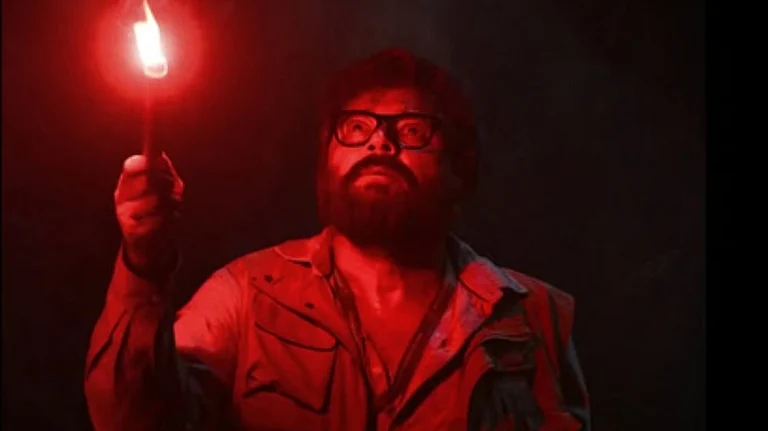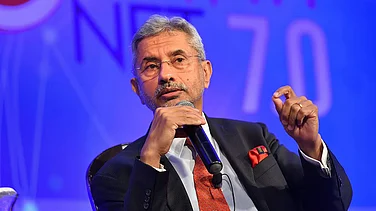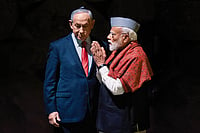India is resurrecting its old Nehruvian image of being the voice of the global south. That rhetoric had died down and almost disappeared from the foreign ministry lexicon. But now, ahead of the G-20 Summit New Delhi wants to present itself as the leading spokesman for the developing world and the bridge between the rich industrialized nations and the global south. As a member of the G-20, India like Indonesia and Brazil has a foot in both camps.
"It is a unique initiative to gather the vast number of countries uninvolved in the G20 to contribute to the process during the Indian presidency. Democratization of G20," Gurjit Singh a former ambassador said.
India has just concluded hosting a two-day virtual summit of nearly 125 developing countries from Latin America, Africa and Asia to share their perspectives and highlight their problems at the G20 summit scheduled for later this year.
Ironically, the Modi government despite constant criticism and laying much of India’s problems on Nehru and the Congress party has in recent times gone back to the old ways, much to the discomfiture of the US and its Western allies.
India’s ties with the US have grown exponentially since the civil nuclear deal was signed, and Washington expected India to be on the side of its new friends. . But New Delhi kept an equidistance, refusing to publicly condemn Russian aggression, buying cheaper oil from Moscow while at the same time sending humanitarian aid to Ukraine. Prime Minister Modi advised both sides to stop fighting and get back to diplomacy to solve their problems.
Since independence, the developing world had been India’s constituency. But that path was abandoned with the changing times. The battle between communism and capitalism was over with the break up of the former Soviet Union and the end of the Cold War. Globalisation was thriving and seemed to be the only answer to lift countries out of the vicious cycle of poverty. The world was one connected village and third-world solidarity was no longer what New Delhi was looking to. Following the 1991 economic reforms and later the India-US civil nuclear deal, New Delhi looked increasingly to America and Europe and the thriving East Asian economies. While India did not completely abandon the Global South the focus had clearly shifted.
But globalization has had its own problems and has led to unequal development, with the rich getting richer while the poorer countries were left behind. Questions on globalization had already been raised in certain quarters before the pandemic but the covid-19 shutdown and the economic pain that followed have led to an open debate. The war in Ukraine, the persistent pandemic ( with China now facing the full brunt) and the US-China tensions have all led to a rethink about the future of the world economy buffeted by global instability.
The fact that the developing world was the hardest hit by the pandemic and the attendant economic meltdown, has encouraged India to get back to its former role as the voice of the global south.
`` India is a natural fit both in providing succour and in leading the way out of a crisis. Therefore, Prime Minister Modi’s call for the Global South to play a role in shaping the new world order is timely and needed,’’ Rajiv Dogra, a former key diplomat said.
He explained why he thinks India is well suited to be the leading voice for the Global South. "Anticipating prolonged tough times India has done well to take the lead. It has the experience. It championed the struggle against racism and colonialism in the fifties. Later in the sixties, and beyond, it was the leading voice in the group of Non-Aligned. And it was a founding member of the economic grouping called the G-77.’’ ,
"Since the world faces multiple challenges of war, energy crisis, food shortages, viruses, and recession, a global response is needed. For the south it assumes greater urgency because it, more than the developed world, will be affected more severely by these ill winds,’’ ambassador Dogra explained.
The pandemic exposed the double standards of the west. When the covid vaccine first hit the market, they were in short supply. The rich countries bought double the vaccines they needed and left nothing for poorer nations. In contrast countries like India and China sent out vaccines to several countries that had none. India had to stop for a time, as its own population had to be vaccinated. Once that marathon task was over, India resumed sending out vaccines to several developing countries.
The Modi government’s initiative to voice the concerns of the developing world is a move in the right direction at a time when developing countries are facing the effects of a major economic downturn. India can be the bridge between the developed and the developing world and raise the concerns of the Global South to the G20 leaders. As Prime Minister Modi said, "Your voice is India's voice and your priorities are India's priorities.’"
"We supported each other in the fight against foreign rule and we can do it again in this century to create a new world order that will ensure the welfare of our citizens.’’























